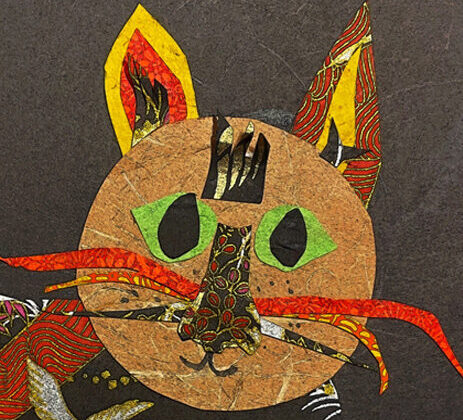
maple leaves by Ray Rasmussen
A lot of work goes into each issue of contemporary haibun online. Below are the people behind cho, listed alphabetically.

Tish Davis
Tish Davis lives in the snow belt in Northern Ohio. Her tanka and related forms have appeared in numerous online journals and print publications. Tish received a Pushcart Nomination for her haibun in Modern Haiku 40:3, 2009. She also contributed to Haibun Today via commentaries and book reviews.
In December 2018, she joined the staff of Haibun Today where she co-edited the tanka prose section along with Tim Gardiner until HT‘s closure in December 2019.

Terri French
Haibun Co-Editor. Terri is a poet/writer and retired massage therapist. The former editor of Prune Juice: Journal of Senryu & Kyoka, she has also served as the Southeast Coordinator of the Haiku Society of America and as Secretary for The Haiku Foundation, of which she is currently a board member.
In 2017 Terri joined the editorial team of the online journal Haibun Today. She and her husband, Ray, have four mostly grown children and one spoiled dog. They now enjoy the nomadic life of full-time RVers.

Editor, 2000-14
Jim Kacian
The publisher of cho, Jim is the founder and president of The Haiku Foundation as well as chairman of its board; founder and owner of Red Moon Press; editor-in-chief of Haiku in English: The First Hundred Years (W. W. Norton, 2013); and author of more than 20 books of poetry, primarily haiku.
Jim founded and edited contemporary haibun way back in the 20th century, and added contemporary haibun online very early in the 21st. He is delighted that it’s still running after all these years.

Ron C. Moss
Ron has published over a thousand haiku worldwide and his haiku and haiga appear in many collections and prestigious anthologies. His collections include The Bone Carver, which won the Snapshot Press Book Award, the Haiku Foundation’s Touchstone Award, and an honourable mention in the Haiku Society of America’s Merit Book Awards. His second collection, Bushfire Moon, contains haiku and prose written about his experiences as a Tasmanian volunteer firefighter. His latest collection, Broken Starfish, brings together 20 years’ worth of haiku and contains simple ink paintings by Ron that link and shift with the haiku. Both Bushfire Moon and Broken Starfish are available directly from Ron at ronmoss8@gmail.com.
Highly regarded in the international haiku community and a member of many societies and groups, he is often asked to judge competitions and has acted as an editor on a wide variety of projects. Ron is also a visual artist and award-winning photographer, often combining his poetry and art online and in various exhibitions. He has travelled to New Zealand and the United States to give presentations and workshops on his art and poetry.

Peter Newton
Peter Newton is the author of several books in the Japanese short -form tradition, including Welcome to the Joy Ride (First Place in the 2014 Haiku Society of America Merit Book Awards for the Best Book of Haibun), The Searchable World (First Place in the 2018 Merit Book Awards), Part-Time Gods (winner of the 2022 Snapshot Press eChapbook Award for haibun), and Glide Path, which won Second Place in the 2023 Merit Book Awards. Born in Detroit and raised north of Boston, Peter is a graduate of the University of Michigan (B.A.) and Middlebury College’s Bread Loaf School of English (M.A.). For more than thirty summers, he has worked as a staff member at Middlebury College’s graduate school of English and The Bread Loaf Writers’ Conference. Since 2012, he has served as co-editor for the online literary journal tinywords.

Encore Editor
Ray Rasmussen
Ray lives in Edmonton, Canada. He dreamed he was a university professor in a previous life. Now retired, he enjoys hiking (and snoozing) in the Canadian Rockies and the U.S. Southwest Canyonlands, and canoeing in Ontario’s Alqonquin Provincial Park. Working with founder/editor Jim Kacian, Ray designed the original cho website and served for many years as its technical editor (webmaster). He’s the past managing editor and haibun co-editor of Haibun Today and has also served as an editor at Simply Haiku, World Haiku Review, Notes from the Gean, and A Hundred Gourds. Ray’s haiku, haiga, haibun, and articles appear regularly in haiku-genre journals, and his work has appeared in a number of anthologies. He’s created/edited three online collections: Day’s End, Romance Under a Waning Moon, and Canyonlands Journal. His web site is http://raysweb.net/haiku/ and his collection of haibun, Landmarks, can be found on Amazon.
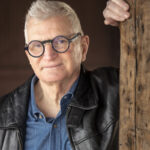
Dave Russo
Dave Russo’s haiku have appeared in Frogpond, Modern Haiku, and Acorn, among other journals, and in the New Resonance 5 anthology from Red Moon Press (2007, 2019). Dave organizes events for the North Carolina Haiku Society and is the society’s web administrator. He is also a founding member of The Haiku Foundation and has managed the foundation’s website from its inception, coordinating the work of web volunteers, guest editors, and service providers.

Haibun Co-Editor
Rich Youmans
Rich has been writing haiku, haibun, and related essays for nearly 40 years and still wonders where the time went. His work has been published widely in various journals and anthologies, and his books include Shadow Lines (Katsura Press, 2000), a collection of linked haibun with Margaret Chula; an e-chapbook, All the Windows Lit (Snapshot Press, 2017); and Head-On (Red Bird Chapbooks, 2018). He is also the co-author, with Roberta Beary and Lew Watts, of Haibun: A Writer’s Guide (Ad Hoc Fiction, 2023). Prior to joining cho, he served as a member of the Haibun Today editorial team.
Rich and his wife, Alice, live on Cape Cod.
Past Editors
This list includes the past editors of contemporary haibun online as well as the annual American Haibun & Haiga and Contemporary Haibun print anthologies, which preceded the digital journal from 2000 to 2004.

Ken Jones
In addition to serving as editor with Jim Kacian and Bruce Ross, Ken contributed regularly to UK and U.S. haiku magazines and was well represented in British and American anthologies. For his contribution to Pilgrim Foxes: Haiku and Haiku Prose, co-authored with Jim Norton and Sean O’Connor, Jones was awarded the Sasakawa Prize for “original contributions in the field of haikai.” His haibun “Travellers” won first place in the 2005 English-Language Haibun Contest, and in 2011 he won joint first place in the British Haiku Society’s Haibun Contest. His other collections include Arrow of Stones (British Haiku Society, 2002), Stallion’s Crag (Iron Press, 2003), The Parsley Bed (Pilgrim Press, 2006), Stone Leeks (Pilgrim Press 2009), and Bog Cotton (Alba Publishing, 2012). A Zen practitioner and teacher of forty years’ standing, he also authored books on socially engaged Buddhism. He lived in Wales, with his Irish wife, Noragh, until his death in 2015.
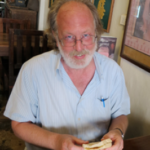
Bob Lucky
Bob contributes regularly to haiku and tanka journals in the U.S., Europe, and Australia. His fiction, nonfiction and poetry have appeared in numerous international journals, including Flash, Rattle, Modern Haiku, KYSO Flash, The Prose-Poem Project, The Boston Literary Magazine, Haibun Today, and Contemporary Haibun Online. His work has been widely anthologized and his books include My Thology: Not Always True But Always Truth (Cyberwit, 2019); Conversation Starters in a Language No One Speaks (SurVision Books, 2018), which was a winner of the James Tate Poetry Prize in 2018; and Ethiopian Time (Red Bird Chapbooks, 2014), an honorable mention in the Touchstone Book Awards. He currently splits his time between Saudi Arabia, where he teaches and plays in a ukulele band, and Portugal, where he is working his way through all the regional cheeses and wines.
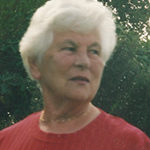
Patricia Prime
The long-time co-editor of Kokako, a NZ haiku journal, Pat also served as reviews/interviews editor of Haibun Today and as a reviewer for Atlas Poetica, Takahe, and other journals. Besides reviewing, she writes traditional verse, renga, linked verse, tanka prose, haibun, cherita, and limericks, as well as collaborative verse and renga with a variety of poets. She has edited, with poets Beverley George and Amelia Fielden, a collection of tanka by New Zealand and Australian poets, 100 Tanka by 100 Poets; has edited, with Dr. Bruce Ross, the World Haiku Anthology: A Vast Sky; has published, with French poet Giselle Maya, a collection of collaborative haibun and tanka sequences, Shizuku; and has published with NZ poet Catherine Mair numerous small chapbooks of poetry. A collection of her poems, The Way of All Things, was published 2019.

Lynn Rees
Lynne is a writer, editor, and award-winning creative writing tutor who blogs as the hungry writer at www.lynnerees.com. She started working with haiku forms—haiku, senryu, tanka, rengay and haibun—in 2006, was the haibun editor at Simply Haiku during 2008 and 2009, and served as co-editor, with Jo Pacsoo, of the British Haiku Society’s haibun anthology, The Unseen Wind (2010). In 2011, she jointly edited, along with Nigel Jenkins and Ken Jones, Another Country: Haiku Poetry from Wales (Gomer Press), the first national anthology of its kind. Lynne published a haibun collection, forgiving the rain, with Snapshot Press in 2012.
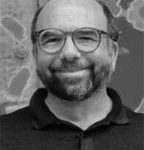
Bruce Ross
Bruce served as editor, along with Jim Kacian and Ken Jones, for the first 14 years of cho‘s life. is a past president of the Haiku Society of America. His haiku, haibun, collaborative renga, haiga, and articles have appeared in haiku journals worldwide. His books include Journey to the Interior: American Versions of Haibun (1998) and How to Haiku: A Student’s Guide to Haiku and Related Forms (2001); three collections of original haiku, thousands of wet stones (1988), among floating duckweed (1994) and Silence: Collected Haiku (1997); and summer drizzles (2006), a collection of haiku and haibun.
